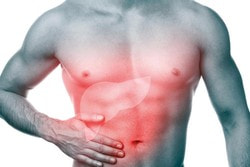There can be a number of disagreeable surprises during holidays.


With a weight of up to 2 kilos the liver is our biggest internal organ. The high blood content represents more than half of its mass. The liver manages about 2000 litres per day, separating, processing, detoxing and sorting substances.
It copes with the manifold functions due to its countless hepatic lobules. They build tiny metabolic units in which around 300 billion liver cells do their work. For the exchange every lobule encloses a small island of connective tissue with detoxifying biliary tracts and providing blood vessels, as the liver needs a lot of oxygen to generate energy.
Via the intestines, nutrients from food reach the liver – e.g. sugar, fats, proteins and minerals. What is not needed at the moment is stored. This also applies to blood sugar. The body cells use it as source of energy. Too much sugar in the blood, however, causes the vessels to harden and the nerves to die. Excessive sugar therefore is stored as glycogen (stored sugar) and is administered to the blood according to the needs, with the aid of the pancreatic hormones. The liver does the same with fats, proteins, vitamins and trace elements. And, if needed, it can transform sugar in fat, which can be a problem in case of malnutrition and lack of exercise (read more about fatty liver here).
With food, also undesirable substances end up in our bodies, e.g. pesticides, softeners from plastic packaging, medicaments and alcohol. Harmful substances are processed in the liver and disposed of. This also applies to toxic "metabolic waste products" like ammoniac from protein breakdown. Water-soluble substances are transported out of the body via the kidneys and urinary tracts, fat-soluble substances via the gall bladder and intestines. Sustainability is the highest principle. What can be used again will be recycled. Excess cholesterol, for example, is used by the liver to produce bile.
The liver also produces several substances itself and takes care of their completion, e.g. hormones, digestive enzymes, proteins for blood clotting, vitamin D for stable bones and cholesterol as basic element for hormones and bile acid. It mixes up to one litre of bile daily and releases it to be transported to the gall bladder. From here it reaches the small intestine as "emulsifier" and acts as important digestive aid. The bile acid breaks down dietary fats into tiny drops, so that the intestine can digest and absorb them.
Source: Silbernagl, Stefan: Taschenatlas Physiologie. Thieme 2012.